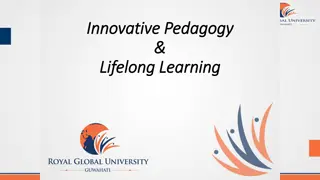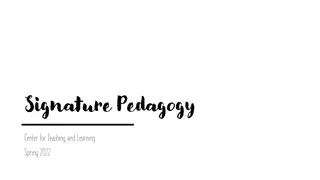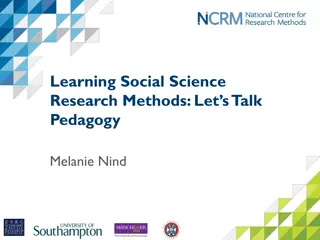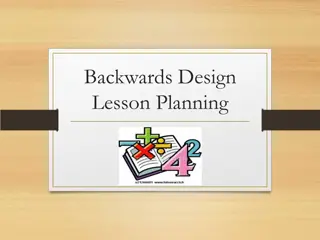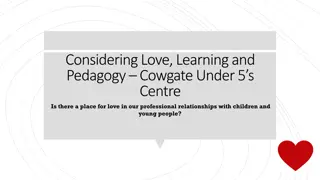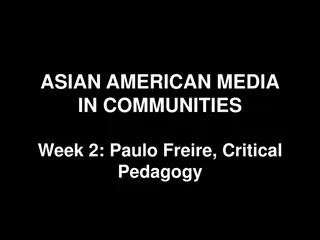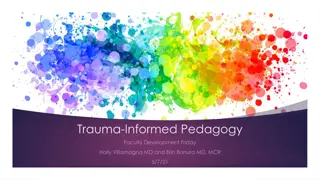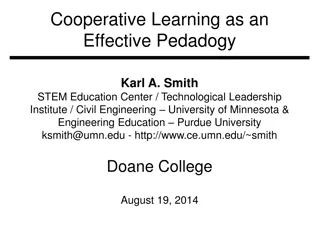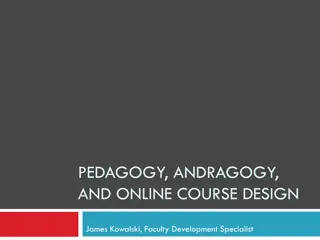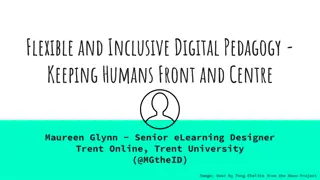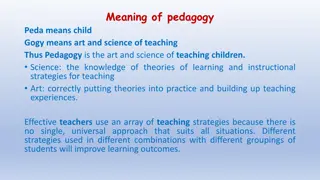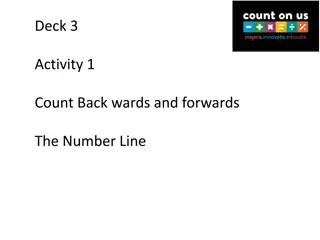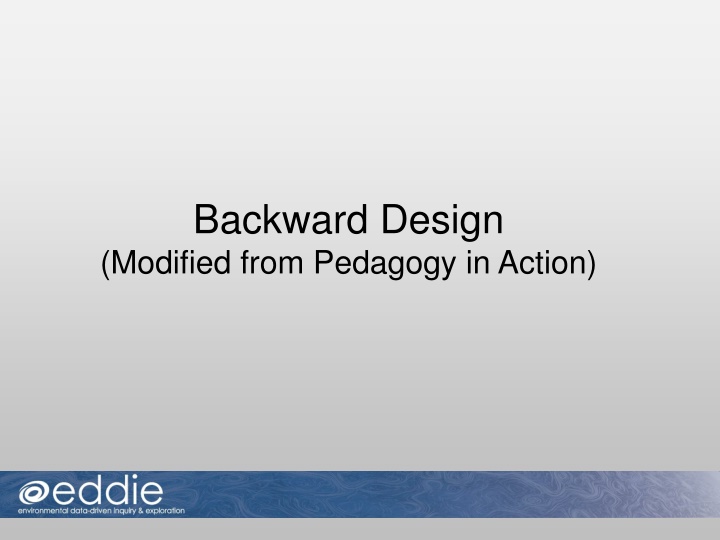
Effective Course Design Principles for Enhanced Learning Outcomes
Explore the principles of backward design in education, focusing on identifying desired learning outcomes, determining evidence of learning, and planning engaging learning experiences. Discover key research findings on student learning and strategies for long-term knowledge retention. Enhance your teaching approach with a focus on enduring concepts and student-centered activities.
Download Presentation

Please find below an Image/Link to download the presentation.
The content on the website is provided AS IS for your information and personal use only. It may not be sold, licensed, or shared on other websites without obtaining consent from the author. If you encounter any issues during the download, it is possible that the publisher has removed the file from their server.
You are allowed to download the files provided on this website for personal or commercial use, subject to the condition that they are used lawfully. All files are the property of their respective owners.
The content on the website is provided AS IS for your information and personal use only. It may not be sold, licensed, or shared on other websites without obtaining consent from the author.
E N D
Presentation Transcript
Backward Design (Modified from Pedagogy in Action)
The Big Picture Think of a particularly significant learning experience you had Why was it significant for you? Record it in the Chat
Research on learning Collected research on learning All freely downloadable from the National Academies Press: http://nap.edu
Key findings Research on learning Students come into our classes with preconceptions, not blank slates Students must have the opportunity to develop a conceptual framework that facilitates retrieval and builds on deep knowledge A metacognitive approach helps students monitor their own learning and become better learners Promising practices: Developing (and using) learning outcomes Engaging students in activities during class, in groups Getting and giving feedback before major assessments Creating a sense of belonging
Five Years Out What Do You Want Your Students to Remember? enduring concepts (e.g., disturbance, equilibrium) how to transfer knowledge how to do specific statistical analyses critical to your field how to make environmental or equitable decisions based on quantitative reasoning
Approaches to Course Design Traditional Backward Enduring Understandings and Learning Goals List Course Topics Design Instruction Acceptable Evidence Design Exams/Papers Instructional Activities After Wiggins and McTighe (1998)
Backward Design 1. Identify desired results learning goals/outcomes Achievable and measurable 2. Determine acceptable evidence to that will demonstrate learning 3. Plan learning experiences that produce learning Use instructional strategies that foster engagement Design activities that give students practice
Backward Design Identify Desired Results Determine Acceptable Evidence Plan Learning Experiences and Instruction
What does this look like at the module or unit level?
Learning Goals (from the Green Infrastructure/ Green Roof Module by Elizabeth Farrell) Discuss the importance of preserving water quality and identify some of the environmental problems associated with stormwater runoff Analyze data and draw conclusions regarding changes in precipitation patterns Evaluate and quantify the effectiveness of green infrastructure as a mitigation technique by using professional-grade models Assess the additional benefits of green infrastructure Use basic equations, shortcuts and graphing in Excel
Determine Acceptable Evidence Graph of precipitation patterns Description how precipitation changes through time For this example: What are the ideas you have for high quality experiences that will demonstrate this knowledge? Answer in the chat
Note about how modules connect to courses Course level learning goals set concepts, skills, & habits you want to reinforce to improve recall & transfer Modules & activitie within them help meet goals at greater granularity Project EDDIE modules offer an opportunity to reinforce inquiry, specific analytical strategies, & quantitative reasoning


